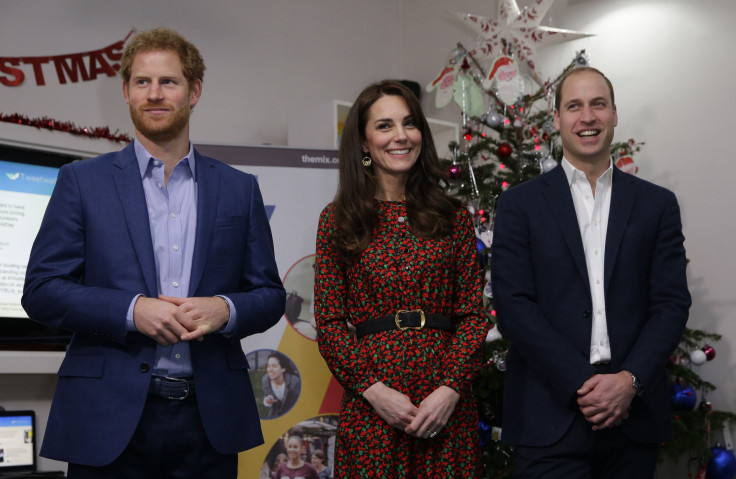Why Are Kate Middleton, Prince William And Prince Harry Talking About Mental Health?

Most people abstain from discussing mental health in public. Discussions around it are often done behind closed doors or simply just kept a secret. However, things seem to be gradually taking a turn as more and more people are coming out in support of opening up about mental health and the British royal family is the latest to show support. In the past week, in a series of videos, Prince Harry, Prince William and Kate Middleton have shared their moments of anxiety.
Prince Harry was praised by mental health campaigners after he revealed his inner anxieties and how he dealt his mother —Princess Diana's — tragic death in 1997, in a podcast interview with the Telegraph last week. Following the trend, Prince William too spoke about mental health in a video chat with pop star Lady Gaga. And now, the Duchess of Cambridge is the most recent to join the duo in a video, as part of the Heads Together campaign, a mental health campaign led by the Royal Foundation in partnership with YoungMinds and seven other charities.
The Duke and Duchess of Cambridge and Prince Harry @KensingtonRoyal show it's #OKtosay as they talk #MentalHealth for @Heads_Together pic.twitter.com/VYLpLNPuO2
— The Royal Family (@RoyalFamily) April 21, 2017
Read: 10 Best Quotes About Depression And Mental Health
A spokesman for the Duke and Duchess of Cambridge and Prince Harry said: "Through their work with young people, emergency response, homeless charities, and with veterans, Their Royal Highnesses have seen time and time again that unresolved mental health problems lie at the heart of some of our greatest social challenges."
Mental health issues have been on the rise in Britain and Prime Minister Theresa May and the royal family has been taking initiatives to fight it.
Mental distress among children is on a rise in the British society. Around 235,189 people aged 18 and under got specialist care, according to data covering 60 percent of mental health trusts in England. 235,000 young people in England were in contact with NHS mental health services at the end of June 2016, according to NHS.
According to a Guardian report filed in Sept 2016, the number of women aged from 16 to 24 screened positive for post-traumatic stress disorder has also gone up sharply from 4.2% in 2007 to 12.6% in 2014. The percentage of young girls causing harm to themselves has also risen by 42% in a decade, the another report in the Guardian said.
Sally McManus, the lead researcher in the survey citied in the report, said: “We know that there are things like violence and abuse that are strongly associated with mental illness.” But, she added: “This is also the age of social media ubiquity. This is the context that [young women] are coming into and it warrants further research.”
There were almost 240,000 incidents in England and Northern Ireland last year in which mental health issues were handled by police, according to Freedom of Information requests. In February, Parliament Street, which studies political issues, demanded greater investment to be done in mental health services. Parliament Street's mental health spokesman, Danny Bowman, said: "It's time to recognise that Britain needs a better funded strategic plan to ensure people who are suffering with mental health problems are properly cared for by specialist health services."
Sarah Brennan, the chief executive of the mental health charity Young Minds, said: “It’s staggering that so many children and young people are in need of specialist mental health care. These figures should act as a wake-up call.”
© Copyright IBTimes 2024. All rights reserved.












